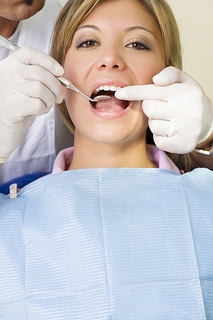Protect Your Enamel from Dental Erosion
July 8th, 2020

We know that the foods we eat and drink can have a definite impact on our smiles. Staining is an unhappy side effect of many of our menu favorites. That’s why we sip red wine through a straw, rinse with water after a slice of blueberry pie, and cut back on the coffee and tea after a single cup (or two—we’re not perfect!). And sugar is the fuel for cavity-causing bacteria, so we try to substitute water for soda, or replace the hot fudge sundae with grilled fruit. And we always brush carefully after indulging.
So far, so good. But while we’re saving our brilliant smiles from stains and decay, let’s not forget one other source of diet-related damage—acids. Acidic foods and beverages can actually erode the surface of our enamel, leaving our teeth more vulnerable to sensitivity and discoloration.
What Is Dental Erosion?
Enamel is the strongest substance in our bodies—stronger than bone—but it is not indestructible. And acids are one of the major causes of enamel damage. (In fact, it’s the acids produced by bacteria that lead to cavities.) Luckily, our bodies are designed to protect our enamel. Saliva helps clean the teeth by washing away food particles and it neutralizes acidity as well. But a diet that’s too heavy in acidic foods can undo all this good work and upset the healthy pH balance in our mouths.
Why is this a problem? Because acidic environments actually cause the minerals in our enamel to break down, a process known as “demineralization.” This weakening of the enamel leaves teeth more sensitive to heat and cold. It can even lead to discolored teeth, as thinner enamel allows the brownish-yellow dentin underneath the enamel surface to become visible.
Are You Aware of Acids?
We can immediately guess at some of the most acidic foods. Citrus fruits and juices, tomatoes in their many culinary forms, anything pickled in vinegar, coffee, tea, wine—these foods are certainly acidic, but also a regular part of many a healthy diet. You don’t need to avoid these foods altogether, but it’s best to enjoy them as part of a meal or enjoy them sparingly. And balance out some of these high-acidity foods at mealtime with low-acidity choices like bananas, bread, and dairy products.
Other sources of damaging acids might surprise you. Studies have linked sodas, energy drinks, and sports drinks to higher levels of tooth erosion. The combination of citric acid, phosphoric acid and/or carbonation raises acidity levels in the mouth. And because we tend to sip them all day long, it’s like a continuing acid bath for our enamel. Water is always a healthy alternative for hydration, but if you do indulge in a soda or sports drink, rinse with water after drinking. And don’t swish—just swallow.
Won’t Brushing Help?
Yes, but watch your timing. Because the acids in foods weaken enamel, brushing right after a big glass of orange juice or a soda can actually be even more abrasive for tooth surfaces. We recommend waiting anywhere from 20-60 minutes to brush. This gives your saliva the chance to not only wash away acids, but to “remineralize” your teeth, bathing them in the phosphate and calcium ions that strengthen enamel.
If you notice any of the symptoms of dental erosion, including pain, sensitivity when you eat or drink something hot, cold or sweet, or yellow discoloration, talk to our doctors during your visit to our Green Bay office about what you can do to help protect and strengthen your teeth. Unfortunately, our bodies can’t produce new enamel. By avoiding foods that stain, by reducing sugars that lead to decay, and by limiting the acidic foods that erode our enamel, we give ourselves the best opportunity for a lifetime of beautiful, healthy smiles.




 Website Powered by Sesame
24-7™
Website Powered by Sesame
24-7™